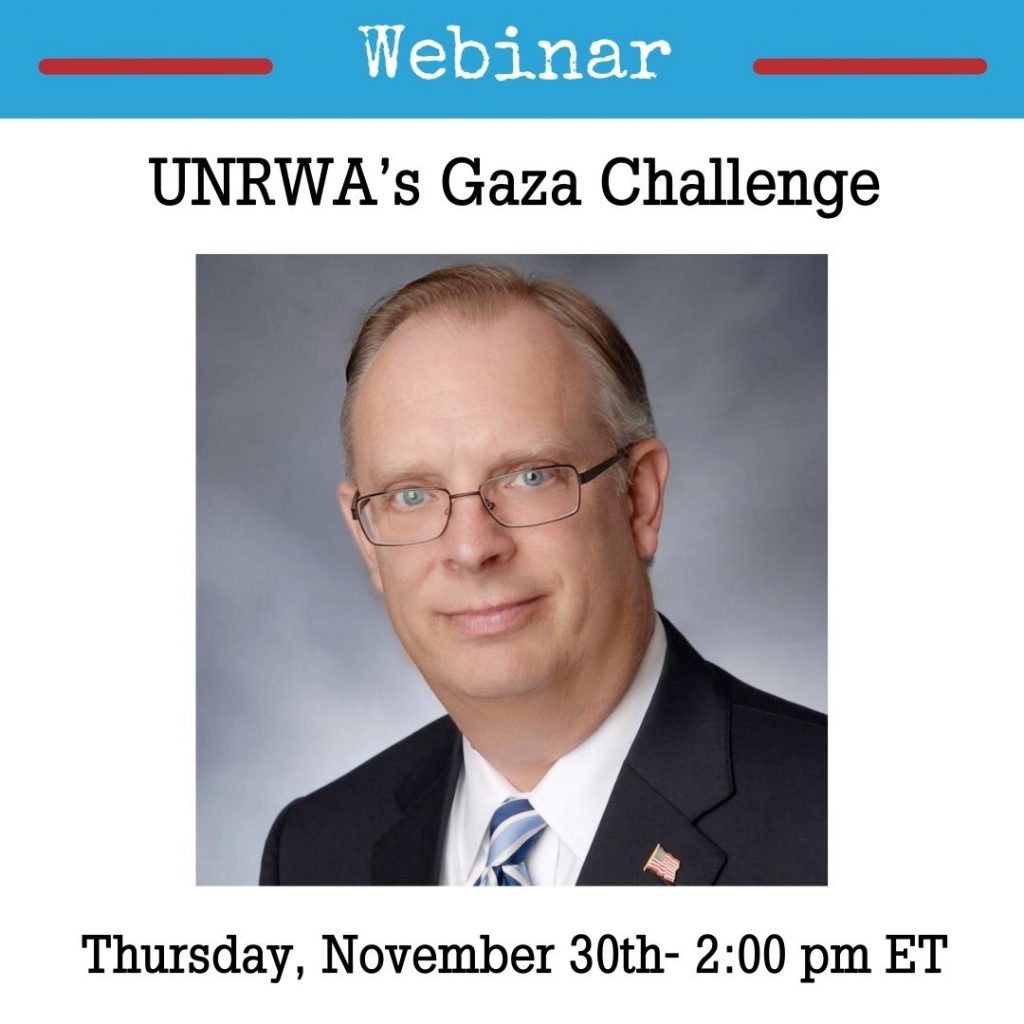This webinar featured a conversation between APN's President and CEO Hadar Susskind and Senator Chris Van Hollen. They discussed the role of Congress in shaping US-Middle East policy and how conversations about the Israeli-Palestinian conflict have changed on Capitol Hill. Senator Van Hollen is a Congressional champion for peace and justice.
Yesterday (April 13), Iran fired hundreds of drones and missiles in a direct assault on Israel. To discuss how tensions between Israel and Iran reached this point, what happened, and the possibilities going forward, we will speak with noted Iran expert Barbara Slavin in a special APN webinar tomorrow, April 15, at 3:00 pm Eastern Time.
Barbara Slavin is a distinguished fellow at the Stimson Center in Washington, D.C. and a lecturer in international affairs at George Washington University. The author of Bitter Friends, Bosom Enemies: Iran, the US and the Twisted Path to Confrontation, and Mullahs, Money and Militias: How Iran Exerts Its Influence in the Middle East, she is a regular commentator on US foreign policy and Iran on NPR, PBS, and C-Span.
This webinar will take place on April 15th at 3:00 pm Eastern Time.
Register HERE.
Over the last few weeks, the subject of humanitarian aid has dominated conversations about the Gaza War. Headlines depict aid trucks being stopped or blocked altogether from entering Gaza and global experts warning that Gaza is on the verge of famine with Northern Gaza likely already experiencing famine. Some individuals and organizations are still managing to offer food and support, providing some measure of relief. To discuss the situation on the ground and the logistics of providing aid, we spoke with Shachar Zahavi, the founder of SmartAid: an international aid agency that leverages technologies to enhance humanitarian efforts worldwide.
In addition to his role at SmartAid, Shachar Zahavi was the founder and Chairperson at IsraAID, where he served as Executive Director for 16 years. There, he spearheaded the organization's global strategy, overseeing its expansion and operations in over 50 countries for both disaster relief and long-term sustainable programs. Shachar is also credited with co-authoring in-depth research on Israel's foreign aid and its impact in the context of foreign government relationships.
Recently, Shalom Achshav released their 2023 settlement report. Their findings were disturbing even by the standards of the actions of Netanyahu’s far-right extremist government. Under the cover of the Gaza war, conditions in the West Bank have quietly but dramatically shifted for the worse. We have seen a record number of plans for new construction, minimal law enforcement against illegal settler activity, substantial budgets for expanding settlements and outposts, and, most significantly, almost unconditional political support from the government for settlers, even in cases involving violence against Palestinians.
To discuss these alarming updates, we spoke with someone on the front lines of observing and analyzing
settlement activity. Hagit Ofran is the co-director of Shalom Achshav’s Settlement Watch program, and is
widely recognized as Israel’s foremost expert on Israeli settlements.
2023 saw a significant surge in West Bank settler violence with the highest recorded number of incidents to date. President Biden's recently announced executive order is designed to address the escalating crisis. The first use of the executive order focused on Israeli settlers in the West Bank accused of perpetrating attacks against Palestinians and Israeli peace activists within the occupied territory. It did so by imposing financial sanctions and visa bans on four individuals. But is constructed in a way that it can have broader-reaching implications on the settlement enterprise.
This webinar features insights from Joel Braunold, Managing Director at S. Daniel Abraham Center for Middle East Peace, and Lior Amichai, Executive Director of Peace Now. The speakers, in conversation with APN's Government Relations Director Madeleine Cereghino, delve into the intricacies of President Biden's executive order, assessing its potential impact on mitigating extremist settlers and potentially undercutting the settlement enterprise as a whole.
At a time when we direly need to collectively heal our broken hearts, we were joined by one of America’s leading rabbis, Sharon Brous, for a conversation on humanity, human connection, compassion, and community.
Rabbi Brous is the author of a new, highly acclaimed book, The Amen Effect, Ancient Wisdom to Mend Our Broken Hearts and World. The book pairs heart-driven anecdotes from Rabbi Brous’ experience building and pastoring her faith community over the past two decades with ancient Jewish wisdom and contemporary science.
Sharon Brous is the founding and senior rabbi of IKAR, a trail-blazing Jewish community based in Los Angeles. A leading voice at the intersection of faith and justice in America, she has been named #1 Most Influential Rabbi in the U.S. by Newsweek/The Daily Beast.
Watch the recording on our YouTube channel- https://www.youtube.com/watch?v=Y4KGF4BZWeA
Listen to the audio on PeaceCast- https://peacenow.libsyn.com/310-mending-our-broken-hearts-with-rabbi-sharon-brous
Read the transcript- https://peacenow.org/entry.php?id=42789
The future of the Gaza Strip is a matter of intense discussion in Israel, Washington and around the world, and, of course, also among Palestinian policymakers and policy shapers. What is the focus of this discussion? How do the Palestinian Authority and the PLO see the future of Gaza? How do they link it to the future of the West Bank and Palestinian society? What are the challenges facing the Palestinian political community and leadership?
For over four decades, as a reporter and columnist, Bradley Burston documented Israel’s conflict with the Palestinians and commented on it. His new book, The End of Israel, details a roadmap to the current catastrophic crisis in Israeli society, which culminated in the events of October 7th and those that continue to follow. Burston introduces the book as a documentation of the consequences of a choice that Benjamin Netanyahu made years ago to “contort and sacrifice his country for the sake of his own political longevity.” As Burston writes, “He chose. Israel lost. End of story.”
Bradley Burston, a US-born award-winning journalist was a reporter for the Jerusalem Post in the 1980s and 1990s, reported on Israel for Reuters, and was a founding editor of Haaretz's English online edition. Haaretz readers were familiar with his column “A Special Place in Hell,” from which his new book was compiled.
|

